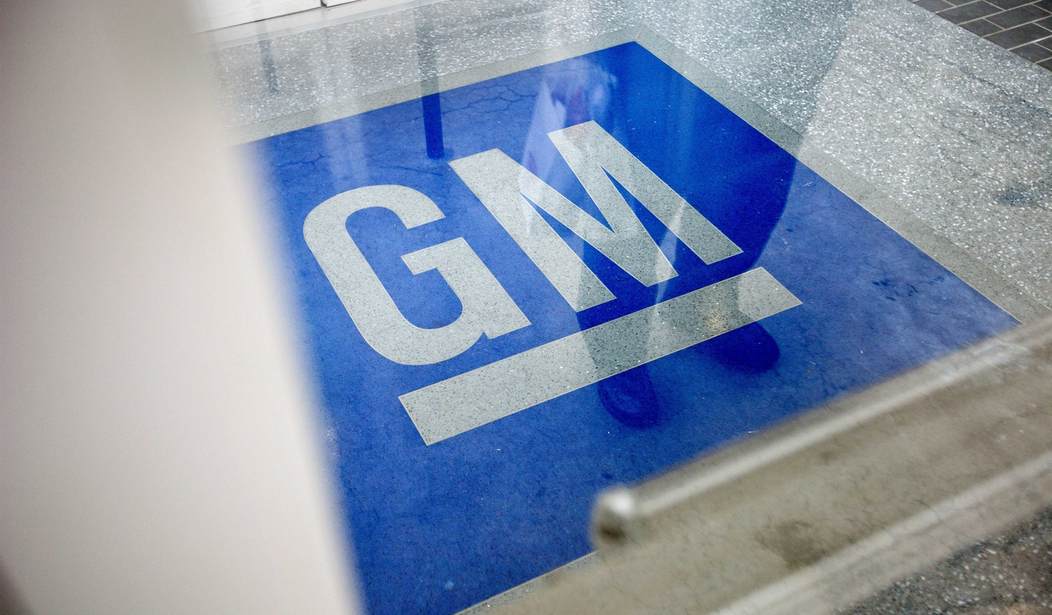Detroit - As the Texas power grid shudders in part under renewable power, the auto industry is also facing an uncertain transition to green energy. General Motors dropped a bombshell last month that it will build only electric vehicles by 2035. The commitment comes as the Biden administration stocks up on climate activists to?transform the economy to fight global warming.
The administration is in line with governments from Europe to China that have declared EVs the future and - for the first time - are mandating which powertrains automakers must use.
But as GM and other automakers spend billions to bring electrics to market, prominent auto and climate experts say they are a solution in search of a problem.
Physicist Frank Jamerson, one of the architects of GM’s EV program, wrote in a 2020 Society of Automotive Engineers paper there is no evidence that gas-fired transportation is changing the climate. An advocate of nuclear power and hydrogen fuel cell development, GM’s ex-chief of electrochemistry said in an interview that “fossil fuels can be used until they run out, in hundreds of years.”
Center for Automotive Research Chairman David Cole, a leading Michigan research firm, concurs: “The climate data has been pushed aside by the politicians. This (climate crisis) idea is being pushed to save the world, and it’s a mistake.” Cole, Jamerson, and Weather Channel founder and meteorologist Joe D’Aleo plan an SAE warming conference in April.
Cole says the enormous investment in EVs, which make up less than 2 percent of U.S. sales today, is creating a two-tiered industry of haves and have nots. Big players like GM, Toyota, and Volkswagen have the resources to invest in a battery-mandated future whereas other companies do not.
Recommended
“The haves can play that game, and the have-nots cannot. The big boys are investing so that if government is pushing autos towards electrification, they will be the winners.”
Veteran climatologists like John Christy, who oversees satellites that monitor global temperature data, says the EV push is disconnected from scientific evidence.
“There is no climate crisis. If you apply the proposed government regulations to the auto industry, they will have no climate impact,” said Christy, professor of Atmospheric Science at the University of Alabama-Huntsville, in an interview. “Indeed, if you eliminate the U.S. economy from the face of the earth, it will have no impact on global temperature.”
Decades of scientific data indicate that global warming alarms have been inaccurate - including the predicted retreat of the Great Lakes in the Detroit automakers’ back yard.
Still, Big Auto has done an about-face on climate regulations after backing the Trump administration’s challenge to California's controversial CO2 emissions rules.
GM's view now aligns with the Biden campaign which asserts “humans’ contribution to the greenhouse effect is indisputable” and poses an “existential threat to . . . human life.” America’s largest auto manufacturer, GM’s reading of the political tea leaves echoes past strategic moves to align itself with Washington trends.
With the U.S. mired in Iraq in 2008, for example, the General supported the Bush administration’s transition to ethanol-fueled cars by 2022 to reduce foreign oil dependence.
A nuclear physicist by training, Jamerson worked at GM for over 30 years, becoming assistant program manager of the U.S. Advanced Battery Consortium in 1990. The alliance of GM, Ford, Chrysler, and the Department of Energy aimed to pool resources for a new generation of battery-powered cars.
The consortium was driven in part by concerns over climate change– fears data no longer support, the ex-GM exec says. Jamerson said batteries have progressed since his team developed GM’s first EV prototype, the Impact - but electrics still suffer from range challenges.
“There is no reason to deny the use of fossil fuels,” he said. “Let the marketplace decide.”
Climatologist Christy said mandating EVs would have no impact on climate: “1) The US is only 14 percent of global emissions so what we do won’t affect much. And 2) climate is not as sensitive to CO2 as the models say it is.”
Warming orthodoxy has been challenged by real world evidence. With Great Lakes levels at cyclical lows in 1988, climate alarmists like then-NASA scientist James Hansen projected man-made warming would cause shrinking coastlines. But lake levels today are back to historic, 30 year-cycle highs. Climate models have also erroneously predicted disappearing polar ice caps and record hurricanes.
James Taylor, president of the Chicago-based Heartland Institute, said in an interview that Biden administration plans to power an electrified vehicle fleet with wind turbines in the next decade would require nearly half the land mass of the United States – “the most environmentally ruinous plan we can think of.”
The contrarian data has not slowed political pressure on automakers. The governors of California and Massachusetts have set a ban on gas-powered cars by 2035. Biden promises rules “ensuring 100 percent of new (vehicle) sales . . . will be electrified."
Auto analyst Cole said that, despite years of climate alarmism and government subsidies, consumers have not embraced EVs. Even in England, one of the most popular countries for electrics, EVs made up only 7.4 percent of sales in 2019.

























Join the conversation as a VIP Member